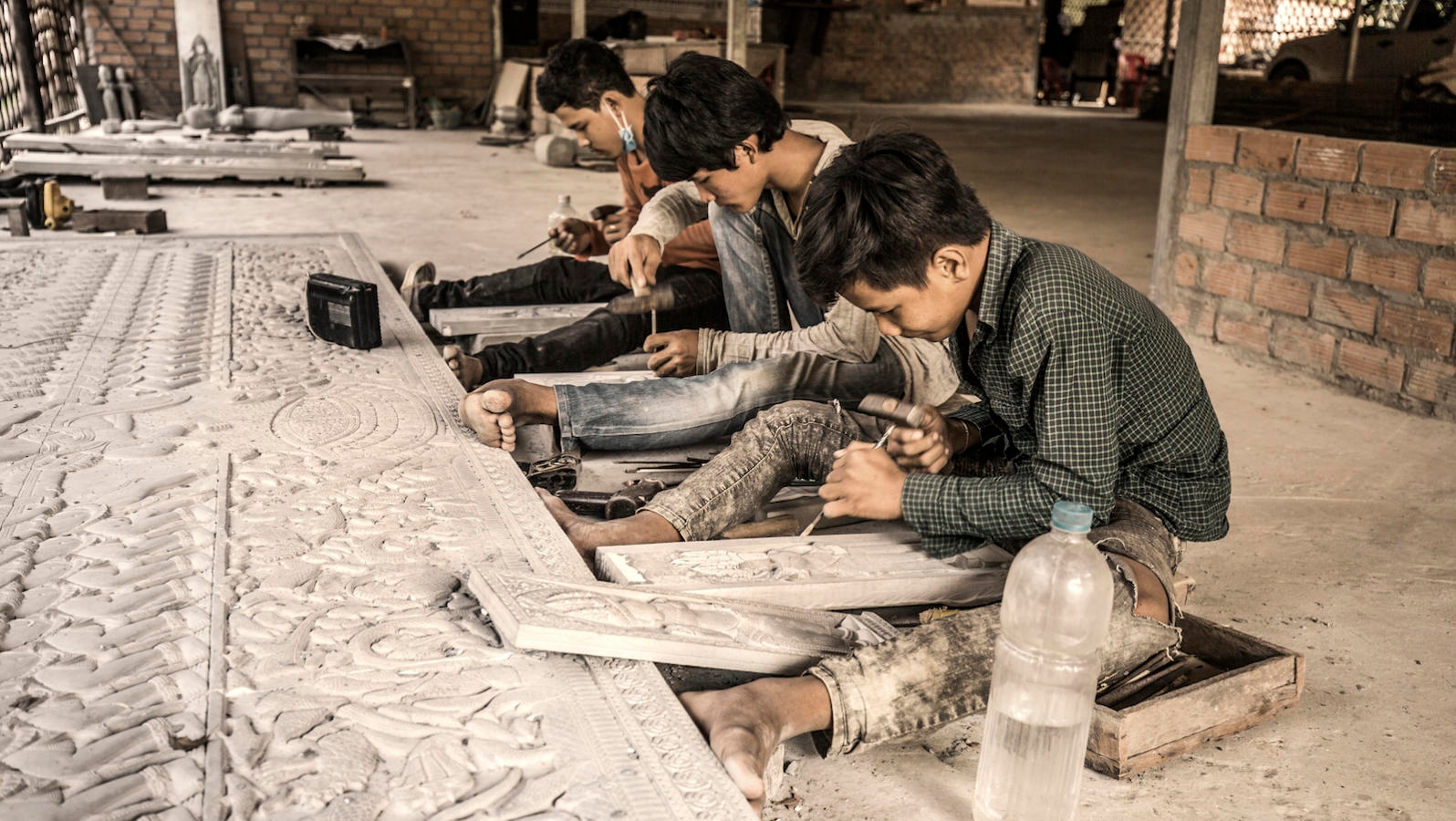Commentary on Parashat Ki Teitzei, Deuteronomy 21:10-25:19
There are some forms of moral outrage for which we do not need the Torah to sensitize us.
Imagine meeting Anwar, who at age 7 began weaving carpets in Pakistan until he earned enough to pay off a family debt. Once, after a particularly painful beating, he tried to run away, only to be apprehended by the police and returned to the carpet looms.
Or Demaris, who at 13 starting working in the broccoli and lettuce fields of Arizona. Exposed to pesticide drift during her 85-90 hour weeks in the fields, she suffered daily nose-bleeds for months on end, several times fainting from plummeting blood pressure.
Or, perhaps, one of the nearly 50,000 Afghan children recruited from schools by the former Taliban government to serve their war effort. If fairly compensated labor is a path to dignity, then abusive child labor is nothing short of the basest pornography.
With your help, My Jewish Learning can provide endless opportunities for learning, connection and discovery.
Child labor occurs daily, around the world, with estimated numbers of 250 million children between the ages of 5 to 14. It occurs in all industries, in all countries, whether developing and industrialized, on family farms and within the purview of multinational corporations. Children are exploited on farms and in factories, on the streets as beggars and prostitutes, trafficked for profit and relegated into bonded servitude. The ubiquitous quality of abusive child labor coupled with its devastating effects, render it not only a labor offense, but also a potential plague.
In Romania, 30 percent of children under 15 have left school to attempt to eke out a meager living in order to help support their families. The depressing domino effect is easy to imagine: increased child labor means less education, which means less skill, which leads to lower compensation and a depressed economy. And the proliferation of child labor only feeds the cycle as employers, successfully exploiting the vulnerable with impunity, see no incentive to reform their practices.
Compared to the Torah
In the face of such moral blight, the admonitions of the Torah seem superfluous. As human beings with even a modicum of inherent moral consciousness, we experience automatic outrage. The Torah, it would appear, provides a theological gloss, a refining, although not deepening, perspective on what we can only view as dreadfully wrong.
But the Torah does more than that. The Torah is ultimately a tool for the constant cultivation of a moral consciousness, the “common sense” which might not be at all so common. Its teachings are designed to penetrate our souls, transforming our “hearts of stone” into “hearts of flesh.” And while the offense of child labor will no doubt present itself to us as heinous, the Torah further illumines for us its evil dimensions.
According to the Torah, labor bestows dignity, but desisting from it brings holiness. This point could not be more explicit. The Torah states, “God blessed the seventh day and declared it holy, because on it God ceased from all the work of creation…. (Genesis 2:3)” As endowed with God’s image, we encounter sanctity when we imitate the divine and partake of the blessing of rest. Conversely, when children are denied respite, the divine image is trampled upon in the most brutal fashion.
Throughout the Torah, we find concern with the inherent dignity of the worker. As a poignant illustration of this principle, we encounter in this week’s portion, Ki Teitzei, the imperative of just and timely compensation to the poorest of laborers: “You shall not oppress a poor or needy worker, whether he be of your kin or a stranger…On the day of his labor shall you give him his compensation, nor shall the sun go down on it; for he is poor, and sets his heart upon it, lest he cry out to God, and you will have sinned” (Deuteronomy 24:14).
These teachings point the way to the simple realization that a society is to be judged on the basis of its treatment of the most vulnerable and desperate. Through its treatment of the needy, a society becomes collectively elevated or morally bankrupt.
But even in the presence of a degradation such as child labor, hope does exist. Linda Chavez-Thompson, Executive Director of the AFL-CIO, spent every summer between the ages of 10 and 15 weeding cotton in 100 degree heat, earning 30 cents an hour. At 15, her father took her out of school in order to work full time. The most dire circumstances can be overcome.
And there is action to be taken. Learn more about anti-child labor campaigns from Human Rights Watch, Amnesty International, and the Global March Against Child Labor. Contact your representative in the U.S. Congress and encourage him or her to amend the Fair Labor Standards Act (FLSA) to impose limits on the number of hours children can work in agriculture when school is in session. Support living wage campaigns–if adults earn more, their kids don’t have to. Support legislation to protect immigrant farm workers, who contribute more than 90 percent of the agricultural labor in this country.
Let us use our Torah portion’s injunction to cultivate a new sense of urgency. Child labor persists, and the outlets for information and action are plenty. May our tradition provide us with the sense of imperative and inspiration to pursue our tasks.
Provided by SocialAction.com, an online Jewish magazine dedicated to pursuing justice, building community, and repairing the world.
Torah
Pronunced: TORE-uh, Origin: Hebrew, the Five Books of Moses.



